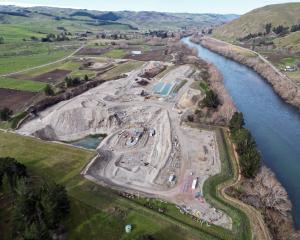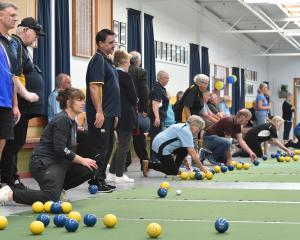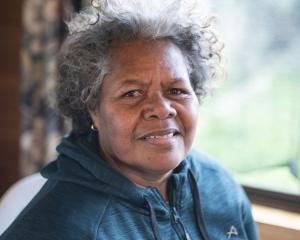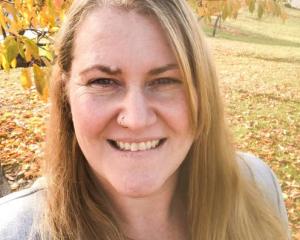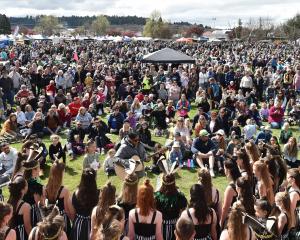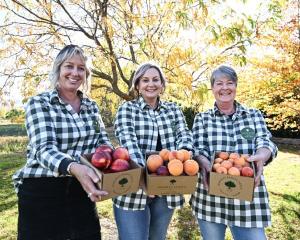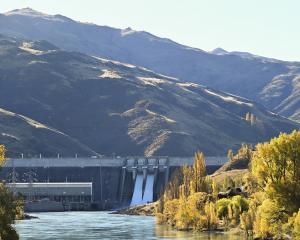
Up to 120 people filled the Alexandra Memorial Hall yesterday to learn about five scenarios for managing minimum flows in the degraded river.
The Otago Regional Council’s policy and planning manager Anita Dawe explained river wellbeing was top priority in national freshwater management regulations, but some remained incredulous.
"If you have 500 people working for an orchard, is that less important than a fish?" one woman asked.
"I disagree with that hierarchy. It is just a concept," a man said.
"It is the law. You will have to take that argument to the Minister [for the Environment]," Ms Dawe replied.
While people were calm, their opinions were firmly expressed.
The Manuherekia Reference Group’s five flow scenarios, ranging in incremental steps from 1200 litres per second through to 3000 litres per second, were unpopular.
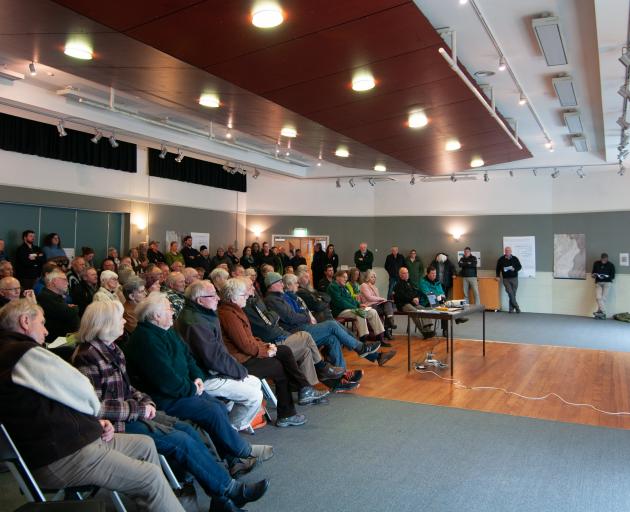
Farmer Gerry Eckhoff accused the regional council of "just plucking numbers out of the air".
Regulating for even half the flow desired by the Central Otago Environmental Society (4000 litres per second) would see dramatic change in the region, Mr Eckhoff said.
"Who will decide what orchard gets water ahead of another ... You cannot do this through rules and regulations," he said.
Scenario five is preferred by some environmental groups but the regional council has acknowledged it would severely stress irrigation reliability and farm viability.
Many questioned the regional council’s process.
People murmured when they learned of an error in a presentation slide and piped up when someone said information pamphlets had not turned up in all letterboxes.
One man said flow data (on swimmable flows) was "totally false"; another demanded data on groundwater nitrates, which was not available; others were concerned about water storage issues at Falls Dam.
Meeting facilitator Andrew Newman conceded the public had suffered for many years from uncertainty about river management.
Earlier work on setting minimum flows had not been good enough, but since 2018 the regional council had consulted, set up a reference group and commissioned science.
Then the new national standards for freshwater management were introduced, requiring the community and council to have another decent discussion, Mr Newman said.
He urged the public to reach agreement and get it embedded into the regional council’s draft Land and Water Regional Plan as soon as possible.
There were ways to get through the new regulatory process, "but it will require some investment", he said.
Manuherekia Reference Group independent chairman Alec Neill stressed he was independent. The group would be reporting to the regional council, he confirmed.
Councillor Kevin Malcolm of Moeraki, another reference group member, encouraged people to ask questions, look at the science and make submissions.
A second public meeting was held at in Alexandra at 7pm. A third is scheduled for 4pm at the Omakau Hall today.
Submissions close on June 18. A report is due in August.
- Marjorie Cook




